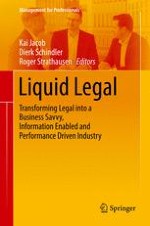2017 | OriginalPaper | Buchkapitel
The Legal Entrepreneur: When Do Corporate Lawyers Act Entrepreneurially?
verfasst von : Andranik Tumasjan, Isabell M. Welpe
Erschienen in: Liquid Legal
Aktivieren Sie unsere intelligente Suche, um passende Fachinhalte oder Patente zu finden.
Wählen Sie Textabschnitte aus um mit Künstlicher Intelligenz passenden Patente zu finden. powered by
Markieren Sie Textabschnitte, um KI-gestützt weitere passende Inhalte zu finden. powered by
